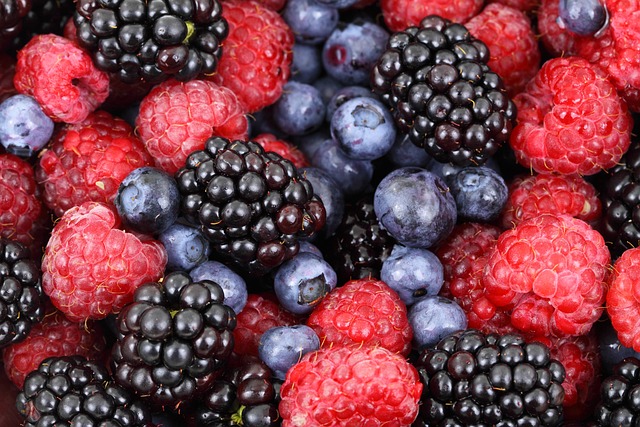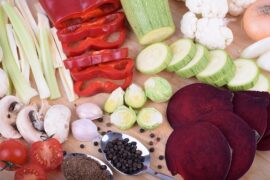In the contemporary era where technological advancements and industrial progress dominate, the allure of organically grown foods is rekindling. Across the globe, a significant shift is occurring, steering away from heavily processed, chemically infused edibles, and moving towards a diet that is as natural and untainted as possible.
But why is this change happening? Why are millions inclined towards organically cultivated products? It’s not just a trend, but a conscious choice – a step towards healthier living, environmental preservation, and ethical consumption.
The Organic Essence
Organic foods refer to products that are grown and processed without the use of synthetic chemicals, genetically modified organisms (GMOs), petroleum-based fertilizers, and sewage sludge-based fertilizers. It’s a return to traditional agricultural methods that are in harmony with nature, prioritizing the health of the soil, air, and water. The organic approach fosters biodiversity, promoting the health and balance of the ecosystem.
A Journey Through Health
Organic eating isn’t just a trend; it’s a return to nature and all the health benefits it offers. Imagine biting into foods untainted by synthetic additives, pesticides, or genetically modified organisms. What you get is not just deliciousness but also a powerful, wholesome meal that’s gentle on the body. The richness of essential nutrients, antioxidants, and vitamins in organic products can help enhance your energy, boost your immune system, and contribute to your overall well-being.
Beyond the immediate perks, consistently consuming organic foods reduces the risk of certain chronic diseases. It’s all about minimizing toxin intake. With no harmful chemicals in your food, you’re treating your body to pure, natural goodness. Think of organic fruits, vegetables, and grains as your wellness haven. Curious about diving deep into the organic lifestyle? Discover Organically Blissful to get insights and tips on seamlessly blending organic choices into your everyday life.
The Environmental Implication
But the organic revolution isn’t only about personal health; it’s a global movement with profound implications for our planet. Traditional farming practices often lead to soil degradation, water contamination, and the disruption of ecosystems. Organic farming, on the other hand, is a testament to sustainability. It respects the natural cycles and biodiversity, promoting soil fertility and conserving water.
The methods employed in organic agriculture are designed to be harmonious with the environment. Crop rotation, green manure, and biological pest control contribute to ecological balance, reducing the necessity for artificial interventions. The absence of chemical pesticides and fertilizers ensures that the surrounding ecosystems, including wildlife and plant life, thrive.
Ethical Considerations
Organic eating stands as more than just a health-conscious decision—it’s a clear and resonant reflection of one’s ethical values. At its core, choosing organic is a stand against detrimental practices that impact not just our planet’s fauna, but also the hardworking individuals behind our food.
Livestock raised for organic production are not only spared from inhumane conditions but also from the perils of synthetic hormones and unnecessary antibiotics. This translates into healthier animals and a significant reduction in the potential transmission of antibiotic-resistant bacteria to humans.
Furthermore, workers in organic farms are less exposed to the dangerous chemicals and pesticides that have been linked to numerous health issues. By opting for organic produce, consumers are making a statement. They are actively prioritizing the well-being of animals and workers, and in doing so, they champion and elevate ethical practices in the food industry.
Taste The Difference
The difference between organic and conventionally grown produce isn’t just about health or ethics—it’s palpable, residing in every bite. Consider the humble tomato: when cultivated organically, it grows at its natural pace, drawing nutrients from a soil that’s free from harmful chemicals. The result? A fruit that is juicier, more vibrant, and packed with intense flavors. This isn’t just about tomatoes.
Across the board, organic produce offers a taste experience that is richer and more authentic. Without the interference of synthetic enhancers or preservatives, what you get is the true, unadulterated flavor of the earth’s bounty. This gastronomic journey offers not just a treat to the taste buds, but also serves as an affirmation of the purity of what you’re consuming.
The Economic Ripple
The economic implications of supporting organic farming stretch far and wide, creating ripples that impact various sectors of the industry. When you invest in organic produce, you’re not just buying a product, but backing a philosophy. This philosophy is anchored in sustainability and respect—for the land, for the environment, and for the countless hands that toil to bring food to our tables.
Organic farming practices ensure that the soil remains fertile for generations to come, and that water sources stay unpolluted. By choosing organic, consumers bolster the livelihoods of farmers who’ve chosen the challenging yet rewarding path of sustainable agriculture. This, in turn, nurtures a market that values quality over quantity, and principles over profit.
Your financial commitment to organic produce, therefore, is not just an expenditure—it’s a forward-looking investment, fostering a future where the food industry thrives on respect, sustainability, and genuine care for the planet and its inhabitants.
Nurturing Future Generations
Organic eating isn’t just about us and the present; it’s about safeguarding the future. As parents and guardians, we constantly aspire to give the best to our children. By introducing them to organic foods, we lay the foundation for healthier eating habits and instill an appreciation for natural, unadulterated produce.
Beyond the table, this choice teaches our young ones the importance of sustainable living and the profound impact of our choices on the environment. In essence, opting for organic is not merely a dietary choice; it’s a legacy of health and consciousness that we bequeath to future generations.
Strengthening Community Ties
At its heart, the organic movement is also about community. Local organic farms provide an opportunity for individuals to connect with their food sources directly, fostering a sense of belonging and understanding that’s often lost in the aisles of supermarkets.
By supporting local organic producers, we’re not just fueling an economy; we’re nurturing relationships, understanding the stories behind our meals, and actively participating in a shared vision for a healthier community. It’s a mutualistic relationship where the consumer, farmer, and land thrive, rooted in trust and shared values.
Conclusion
The journey towards organic eating is not a fleeting trend but a steadfast shift towards conscious consumption. It is a choice that encapsulates health, ethics, environment, and economy. The untapped potential of organic eating is vast, promising a future where food is not only a source of nourishment but also a medium of connection to our roots, our ethics, and our planet.
In every bite of organic produce, we taste the earth’s natural abundance, untainted and unmodified. We embrace a world where our meals are free from chemical additives, where the soil is rich and fertile, where the water is pure, and where every living being, from plants to animals to humans, is treated with respect and dignity. Organic eating is not just a personal choice but a global movement – a step towards a world that’s greener, healthier, and more equitable for all.
Every individual’s choice to adopt organic eating doesn’t just benefit them; it contributes to a collective effort. It’s a small yet significant step in the marathon towards a sustainable, ethical, and healthy world. We are not just what we eat, but also a reflection of how our foods are grown and treated. In the grand symphony of life, every choice echoes in eternity, and the choice to eat organically is a melody of health, ethics, and sustainability harmoniously intertwined.




